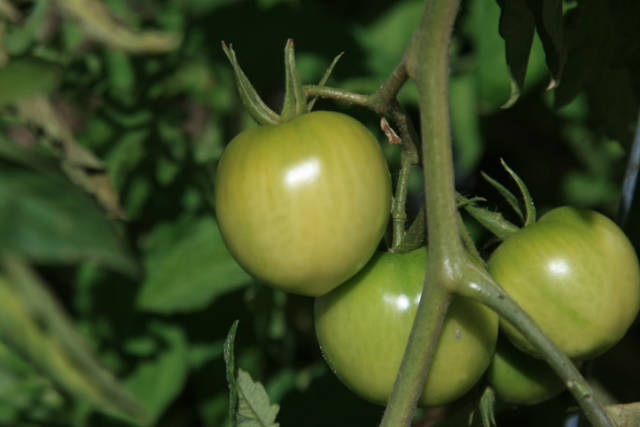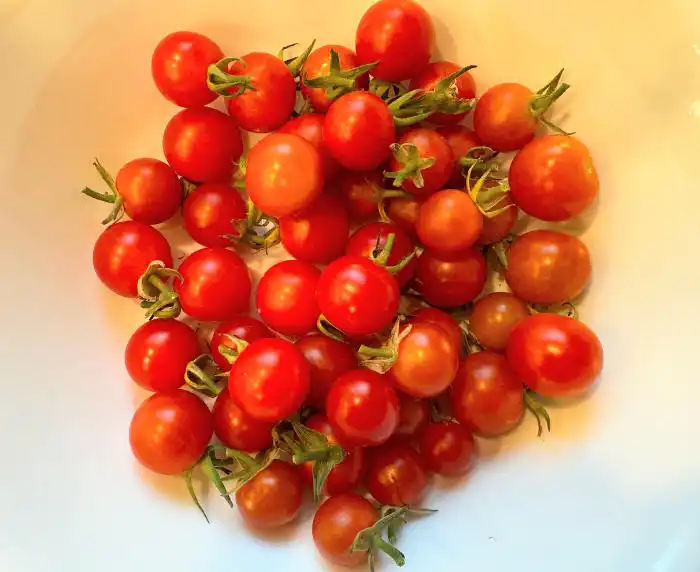So, you’ve planted your tomatoes, nurtured them with love, and now you’re eagerly waiting for those juicy, fruits to ripen, but your tomato is not turning red…what? Why you may ask are they stubbornly staying green.
Find out some reasons why your tomatoes might be taking their sweet time to turn red.
This post may contain affiliate links. Please see my disclosure policies. If you purchase after clicking an affiliate link we may receive small commission at no cost to you. As an Amazon Associate I earn from qualifying purchases.
Tomatoes Not Ripening – Tomatoes not Turning Red
Trying to determine the cause is sometimes just a process in elimination. The most common reasons for tomatoes not ripening are:
- high temperatures
- too much nitrogen in the soil
- too many fruits on one plant
- the type of tomato
Temperature – Find the Perfect Balance
Tomatoes are pretty picky about their environment. They like it warm, but not too hot. Ideal ripening temperatures are between 70-85°F. If it’s too hot (above 85°F) or too cold (below 50°F), the ripening process can slow down or even halt.
In hot climates, like our Arizona summers, tomatoes might need a bit of extra care. Consider providing some shade during the hottest part of the day to keep them cool.
Sun & Shade
Tomatoes need plenty of sunlight to grow and ripen, but surprisingly, direct sun exposure isn’t as crucial for ripening as you might think. In fact, too much direct sunlight can cause the fruits to overheat, leading to sunscald – those nasty white or yellow patches on your tomatoes.
Ensure your plants get enough light, but consider some dappled shade during the peak of summer heat.
Nutrient Know-How: Feed Them Right
Healthy soil equals happy tomatoes. Ensure your soil is rich in nutrients. Phosphorus and potassium are particularly important for fruit development.
If your tomatoes are lush and green but not turning red, they might be getting too much nitrogen, which promotes leafy growth rather than fruit ripening. A balanced fertilizer can help address this issue.
Consistent Watering: The Right Amount
Tomatoes need consistent watering, but not too much. Water stress can cause tomatoes to slow their ripening process.
Make sure your tomatoes are getting a regular, deep watering. Mulching around the base of your plants can help retain moisture and keep the soil temperature steady.
Ethylene Effect: A Ripening Boost
Tomatoes produce a natural gas called ethylene, which helps them ripen. Sometimes, if they’re not turning red on the vine, you can pick the mature green tomatoes and let them ripen indoors.
Place them in a paper bag or a cardboard box with an apple or banana – these fruits emit ethylene too and can help speed up the ripening process.
Pests and Diseases
Keep an eye out for pests and diseases. Certain fungal infections or pests like aphids and whiteflies can stress the plant and affect fruit ripening.
Regularly check your plants for any signs of trouble and treat them promptly. A healthy plant is more likely to produce ripe, red tomatoes.
Variety Choices: Know Your Tomatoes
Not all tomatoes are created equal. Some varieties are naturally slower to ripen or have different ripening characteristics.
For example, cherry and grape tomatoes often ripen faster than larger varieties like beefsteak.

Stress-Free Zone
Tomato plants can be sensitive to stress, whether it’s from extreme weather, irregular watering, or nutrient imbalances.
Stress can slow down the ripening process. Keep your plants happy by maintaining consistent care routines and protecting them from harsh conditions.
Gardening is a Process
Gardening is a learning experience, and each season brings its own set of challenges and rewards. If your tomatoes are taking their time to ripen, take a deep breath and remember that nature often works on its own schedule.

